Bocas
Maluma, the 'pretty boy' who conquered the world
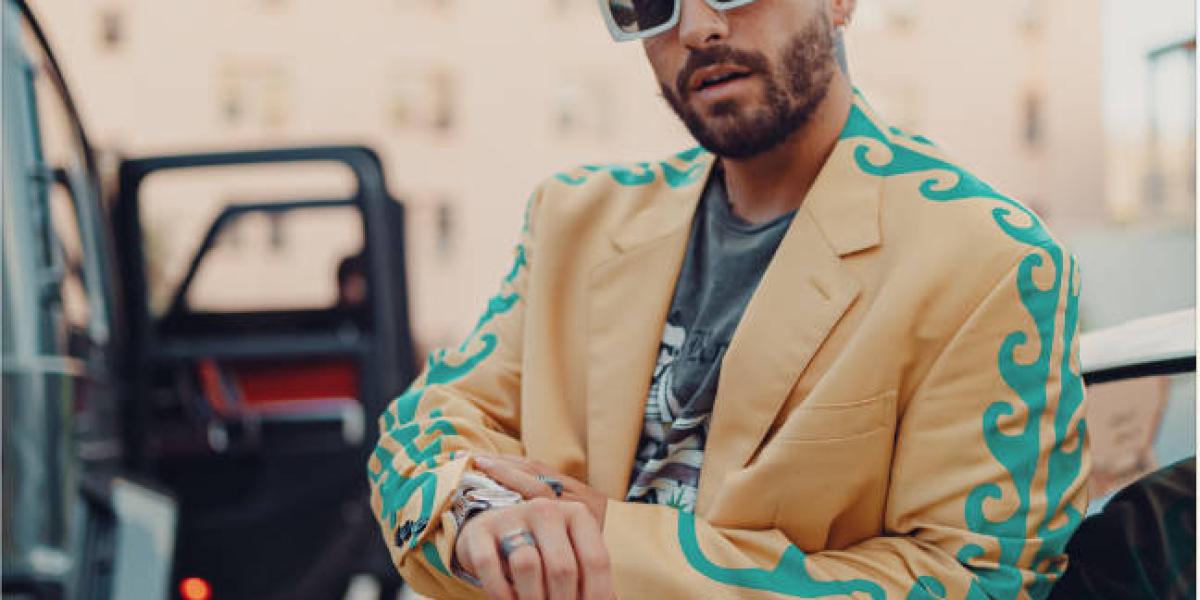
skfhdlsk
Foto:
The singer gave BOCAS a long interview about his life and how he became a worldwide phenomenon.
“I have a very clear image in my head: in a matter of seconds, I started to feel the floor was moving and, when I looked down, I saw that they were girls lying on the floor”.
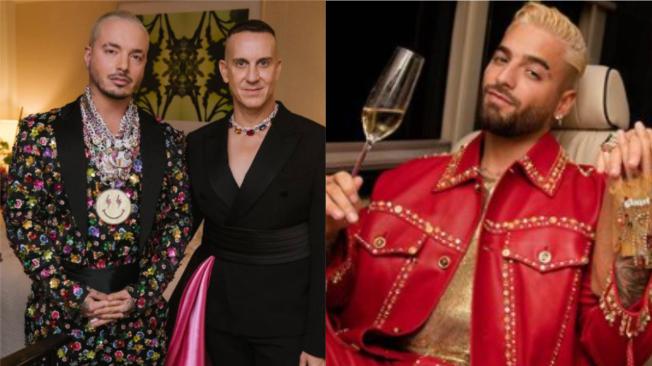
Los colombianos que fueron invitados al MET Gala 2021.
Foto:
Compartir
In your childhood and teenage years, you played a lot of soccer. In fact, you went through the lower divisions of Atlético Nacional and Seguros La Equidad. How serious was that plan?
Juanfer Quintero, who is your friend, says that you were ready to play for any team in Colombia. He once said that you were “a very smart left-footed player”. Tell us about your soccer years.
Could you have taken Juanfer’s position?
Did you get to play together?
Your parents split up when you were 12 years-old and your father had to move to Bogotá for work. The situation got complicated at home and the story goes that you took over the household, selling sandwiches and sweets at school.
And you also used to write custom love letters for your classmates’ girlfriends?
Was it your sister Manuela who helped you get the Maluma tattoo on your arm, which, as we already know, are the initials of the names of your mother, father, and sister?
She didn’t want to go with you or what happened?
The one who supported you a lot was your aunt, who encouraged you to record your first song. How does that story go?
But I’ve heard that you were going to record a duet song, but your partner did not come. What happened?
Did we miss the Arias – Londoño duet?
Arias missed a great opportunity…
Between soccer practice and concerts, how did you do with school?
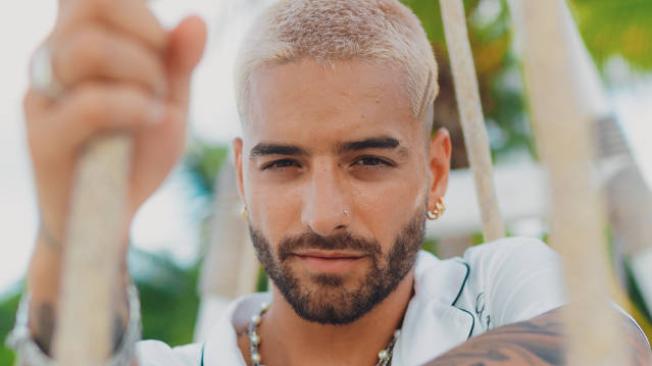
sfjjdlk
Foto:
Compartir
I can't imagine your coach’s face when you told him that you were better off singing.
And what was it like to tell your father who had supported your soccer pursuit since you were a child?
And you entered dance and singing lessons...
Then you became the king of fifteen party's in Medellín. Is it true that you did four parties in one night and almost 400 shows in one year?
But you only had one song, which was 'Farandulera' and that you repeated over and over in your shows.
Then you went on tour around Colombia in van. Is it true that eight people slept in a room?
And then you had your break, The Voice Kids. Why do you think this was your moment?
Latin American fame came to you out of the blue, to the point that in Mexico you were almost killed by fans for not having any security scheme planned.
In the blink of an eye, you became a global celebrity. The Beatles say that when Beatlemania exploded, each one of them was given a hotel suite, but they would lock themselves in the bathroom of one of the rooms to say: “Shit! What's going on?” Did something like that happen to you? Does it keep happening to you?
Then you were judged for the song 'Cuatro babys'. What was the most difficult thing that song brought you?
The most bizarre thing that happened to me with 'Cuatro Babys' was that the other assholes who wrote the song with me never had to face what happened. I was the one who had to take everything
In the same way, there was a lot of controversy surrounding your song 'Felices los cuatro'. It is very provocative, isn't it?
Even Elvis.
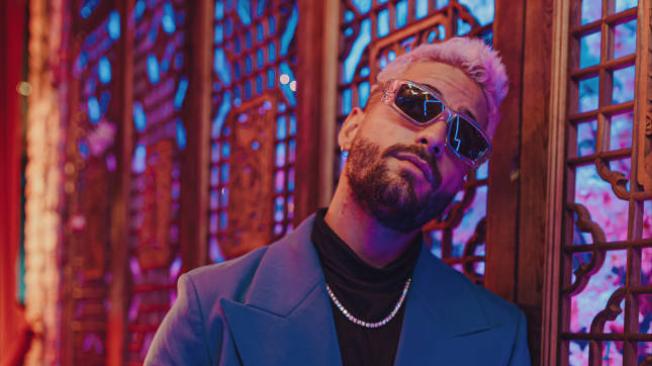
ksjfdl
Foto:
Compartir
At what time did you realize that social media was such an important channel? I ask this because you are a true artist on that subject.
After that you recorded the song ‘Felices los Cuatro’ in a salsa version with Marc Antony. He's one of your favorite artists, right?
I heard of a very funny story between you and Madonna. Can you tell me about the scene with the horse and the torn pants?
There is also a compromising scene with Shakira, if I'm not mistaken.
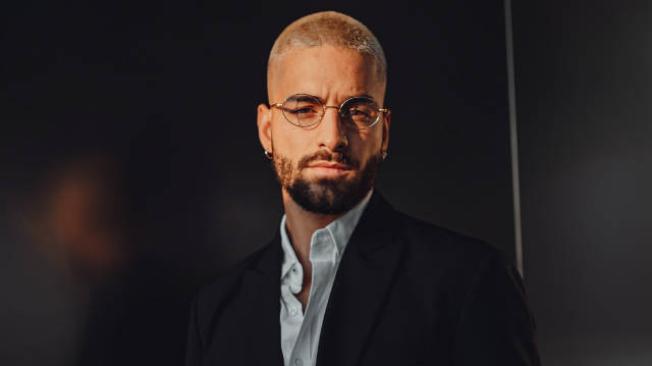
lkfjdlksjf
Foto:
Compartir
Let's talk about your Hollywood debut. You just shot a romantic comedy ‘Marry Me’, with J. Lo. Tell us about it.
Moreover, you have shown yourself as a fashion icon. You walked for Dolce Gabana and have attended Dior shows. In one of those, you were sitting between Kim Kardashian and David Beckham. What was it you said to her that made her laugh so much?
At what point did you decide to buy your private jet? When did you think, “I deserve and need a plane”? And by the way, where and how do you buy a plane?
Then you published it on your social media, of course, and many people in Colombia criticized you. What do you have to say to people who criticize you for buying a plane?
You have already performed in the most important stages of the world. Are you surprised that, for example, in Israel your fans sing the songs in Spanish?
Even the crown prince of Abu Dhabi is your fan. Is it true that he invited you to his house to give a private concert?
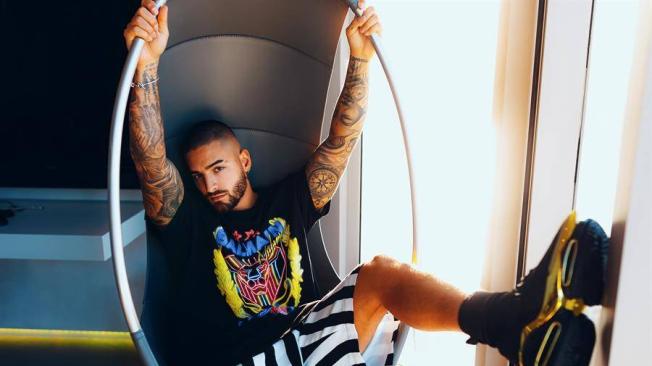
Maluma luciendo uno de los modelos de su colección "Maluma X Balmain".
Foto:
Compartir
So, do you define yourself as a reggaeton, pop, rap singer or all of the above?
Your foundation “The Art of Dreams” today helps 170 children in the low-income neighborhoods of Medellín. What is the best thing that this had given you?
What is your spiritual path?
What do you hate most about fame?
Do you see yourself retired at some point or, on the contrary, do you want to perform until you die?
Define yourself.
More english news

DESCARGA LA APP EL TIEMPO
Personaliza, descubre e informate.
Nuestro mundo

Calendario escolar: las vacaciones de mitad de año en cada departamento de Colombia
La ley contempla 40 semanas de trabajo académico como mínimo y 12 semanas de receso.

El pueblo a 2 horas de Medellín con miradores panorámicos que era el hogar de una santa
El pueblo se ubica en la cima de la región cafetera del sudeste de Antioquia.

La playa paradisíaca en Florida que está a menos de una hora de Tampa
Esta playa será una gran alternativa para sus próximas vacaciones.

Estadounidense contó que quedó atrapada en su auto a 46 grados por este error
No quería dañar el auto así que no usó ninguna de sus funciones.

Marchas en Bogotá: ¿cómo se calcula cuántas personas asisten a una manifestación?
La Plaza de Bolívar, donde llegan las principales manifestaciones, tiene una capacidad de 55.600 personas.

TransMilenio: estas son las rutas que lo llevan de un portal a otro en menos tiempo
El sistema de transporte público cuenta con 138 estaciones y 9 portales en la capital.

Investigan la muerte de reconocido periodista que fue hallado sin vida en su residencia
Julio Zapata fue el fundador del medio digital San Rafael Online, en el Oriente antioqueño.

Las fuertes lluvias que han caído en el Urabá antioqueño dejan cientos de damnificados
Cerca de 13 veredas de Carepa están bajo el agua. Un joven fue arrastrado por un río.

Envían a la cárcel a mujer que le quemó las manos a su hija de 7 años en una estufa en Tuluá (Valle del Cauca)
Los presuntos maltratos eran constantes, según la Fiscalía, que pidió medida de aseguramiento.

¿Cómo ha logrado el alcalde de Cali disminuir las cifras de delitos de alto impacto?
Estrategias que le han permitido al mandatario caleño alcanzar cifras favorables en su gestión.

Barranquilla : Tecnoglass busca empleados sin experiencia para su planta
"Esto se va a poner mucho mejor", anuncia, Christian Daes, el CEO de la compañía.

Fuerza Aérea Colombiana apoya extinción de incendio sobre Vía Parque Isla Salamanca
Un helicóptero 212 traslada hasta el punto a personal de bomberos, Defensa Civil y Policía.

Atracos en el cerro Ecce homo de Valledupar tiene en alerta a la comunidad
Este fin de semana dos personas fueron asaltadas por un sujeto, tras intimidarlos con arma de fuego.

Capturan en Cauca a presunto cabecilla que mostraba armas y lujos en redes sociales
Se trata de alias 'Channe', quien estaría vinculado al sesinato de líderes sociales.

Activistas de derechos humanos en Argentina piden juicio político contra Javier Milei
El ajuste económico implementado por el presidente es una de las motivaciones de esta petición llevada al Congreso del país.

Al menos una de cada tres bandas criminales en Haití tiene niños entre sus filas, según Unicef
La organización expresó su preocupación ante el peligro que corren los niños actualmente en el país.
Ecuador: ¿qué tan efectivas son las medidas aprobadas en la consulta de Daniel Noboa para enfrentar el crimen?

'Estaba contento porque se iba a devolver a montar un negocio': asesinan a colombiano en Perú; familia busca ayuda

Cajera de un restaurante fue víctima de un millonario robo armado, pero la escena escondía un engaño


'No es una oficina secreta': así va a funcionar la sede de la Corte Penal Internacional en Venezuela
El fiscal de la CPI, Karim Khan, estuvo este lunes de visita en Caracas.

Justicia de Venezuela interviene por segunda vez el partido del líder opositor Henrique Capriles
Esto, en respuesta a una solicitud del diputado José Brito, candidato a las presidenciales del próximo 28 de julio.

Fiscalía y la defensa enseñan sus armas en caso penal contra Donald Trump, ¿cuáles son sus argumentos?
Este lunes, se inició la fase alegados en el juicio penal contar el expresidente de Estados Unidos.

La 'América rusa': el olvidado episodio en el que Rusia colonizó estados en EE.UU.
Este momento llegó a su fin con la venta de Alaska a Estados Unidos en 1867.

La polémica ley en el Reino Unido para expulsar inmigrantes a Ruanda supera el debate parlamentario
Los miembros de la Cámara de los Lores renunciaron finalmente a presentar más enmiendas.

El plan secreto de la 'pacífica' Suecia para construir una bomba atómica
Suecia se ha opuesto a las armas nucleares, pero tras la Segunda Guerra Mundial se embarcó en un plan.

Exclusivo: entrevista con activista LGBTIQ+ elegido por TIME como una de las personas más influyentes de 2024
Frank Mugisha habla sobre la ley anti-LGBTIQ+ de Uganda, una de las más severas del mundo. 'Mientras exista una ley así, siempre habrá discriminación', dice.

Ejército de Nigeria rescata a una joven secuestrada hace 10 años por el grupo Boko Haram
Todavía unas 100 jóvenes siguen desaparecidas. Esto es lo que se sabe.

¿Qué es el fósforo blanco y por qué Israel lo está usando en sus ataques en Líbano?
Durante los últimos seis meses, Israel disparó municiones de fósforo blanco en la frontera sur de Líbano.

Juicio en Catar de mexicano perseguido por ser gay: familia acusa a autoridades de fabricar delitos
Este lunes se inició en ese país el juicio contra Manuel Guerrero Aviña, a quien le imputaron el delito de posesión de drogas.
'No hemos perdido la esperanza', asegura primer ministro de Catar sobre negociaciones de tregua en Gaza

La agencia de la ONU para los refugiados palestinos (UNRWA) debe mejorar su neutralidad, según informe

'Llevaré el dolor conmigo para siempre': Las razones que llevaron al jefe de inteligencia de Israel a renunciar a su cargo

El presidente de Turquía se reúne con el líder de Hamás: le prometió trabajar por un Estado palestino

La guerra de Gaza se globaliza y el juego es en extremo peligroso / Análisis

‘Es vital que el conflicto en Oriente Medio no se descontrole’: Otán

Tensión en Oriente Medio: mueren 37 personas en Gaza en los ataques israelíes de las últimas 24 horas

A pesar de las tensiones, ataque ‘limitado’ de Israel a Irán sugiere desescalada

Bombardeo en base militar de Irak deja al menos un muerto y ocho heridos, según fuentes de seguridad

Así es Isfahán, la ciudad iraní atacada por Israel que alberga la mayor central nuclear del país

Lo que se sabe hasta el momento sobre el ataque que lanzó Israel contra Irán

EN VIVO| Tensión en Oriente Medio: muertos en Gaza superan los 34.000 tras ataques israelíes

Israel lanza un ataque contra Irán y Teherán activa su defensa aérea tras explosiones

Atención: reportan explosiones simultáneas en Irán, Irak y Siria; esto se sabe

La UNRWA se defiende de acusaciones de Israel, que señalan a la agencia de la ONU de cooperar con Hamás

Irán lanza dura advertencia: podría revisar su 'doctrina nuclear' por amenazas de Israel

La carta escrita a mano que el mexicano perseguido en Catar por ser gay le envió al Gobierno de su país

Israel pensó en tomar represalias inmediatas contra Irán por ataque del sábado, pero lo descartó: ¿por qué?


Líder de Corea del Norte supervisa simulacro de contraataque nuclear, ¿de qué se trata?
El ejercicio tuvo lugar el lunes y se realizó con 'unidades de cohetes múltiples', según la agencia estatal de ese país.

Lluvias torrenciales en el sur de China dejan cuatro muertos y al menos 10 desaparecidos
Las fuertes precipitaciones, así como las inundaciones provocadas, obligaron a más de cien mil personas a evacuar de urgencia.
Vuelve a temblar con fuerza en Taiwán: se registra sismo de magnitud 6.0

Terremotos en Taiwán hoy lunes 22 de abril: magnitudes y profundidades

Así se vive bajo el asfixiante régimen de Corea del Norte según dos mujeres que lograron escapar

Caso Daniel Sancho: abogado de Edwin Arrieta testificará en nombre de la familia en el juicio

Un muerto y siete desaparecidos tras estrellarse dos helicópteros de las fuerzas japonesas

'Nos tomamos unas setas alucinógenas': hermana de Edwin Arrieta detalla inédito mensaje de Daniel Sancho

El dispositivo japonés que utiliza IA para predecir las futuras renuncias de los empleados

China estaría reforzando sus capacidades militares en el espacio, según la Nasa

Abogados de la familia de Edwin Arrieta solicitan oficialmente indemnización de más de 3 mil millones

Nueva petición en juicio por el caso de Edwin Arrieta en Tailandia: fiscalía cita a declarar a dos abogados de Daniel Sancho

India: ¿por qué las elecciones generales tardan 44 días y el proceso se divide en siete fases?

¿Quién es Truong My Lan, la magnate inmobiliaria condenada a muerte en Taiwán?

Land Sword II, el misil tierra-aire de fabricación doméstica que Taiwán probó con éxito

Indonesia entra en emergencia por erupción de volcán que causa evacuación de más de 800 personas

Emiratos Árabes Unidos: ¿por qué en Dubái llovió en un día lo que normalmente llueve en un año y medio?

Terremoto hoy en Japón: reportan fuerte sismo de magnitud mayor de 6 en el país asiático

Impactantes imágenes de la lluvia más fuerte en la historia de Dubái: inundaciones paralizan aeropuertos y autopistas

Arranca la segunda semana del juicio contra Daniel Sancho: estos son los testigos y las pruebas que enseñará la fiscalía


La 'América rusa': el olvidado episodio en el que Rusia colonizó estados en EE.UU.
Este momento llegó a su fin con la venta de Alaska a Estados Unidos en 1867.

¿Qué es el fósforo blanco y por qué Israel lo está usando en sus ataques en Líbano?
Durante los últimos seis meses, Israel disparó municiones de fósforo blanco en la frontera sur de Líbano.
La apuesta entre dos magnates que resultó en la creación de la primera locomotora: la revolución del transporte terrestre

¿Quién es Juan Merchan? La polémica del juez nacido en Colombia que preside el juicio contra Trump

El plan secreto de la 'pacífica' Suecia para construir una bomba atómica

El gasto militar global tuvo un aumento sin precedentes: ¿qué hay detrás y qué países dominaron las inversiones?

Estados Unidos veta la entrada de Palestina en la ONU como miembro de pleno derecho

¿Hay riesgo de desestabilización mundial? Experto explica por qué los conflictos aumentaron en los últimos 30 años

Los náufragos rescatados en una isla desierta tras escribir 'HELP' en la arena de una playa

El científico que estudia a las personas que poco antes de morir 'ven' a seres queridos que ya fallecieron

Qué fue de las 276 niñas secuestradas por el grupo militante islamista Boko Haram hace una década

Ataques a cuchillo y terrorismo en Australia: ¿qué hay detrás de los hechos violentos en Sídney?

China apoyaría una conferencia de paz 'reconocida por Rusia y Ucrania', dice Xi a Scholz

Ataque en iglesia de Sídney fue un acto terrorista, según policía australiana

Nuevo caso de violencia en Australia: un sacerdote y varias personas apuñaladas durante una misa en Sídney

Policía identifica al autor del apuñalamiento en un centro comercial en Sídney: ¿qué se sabe?

La Unión Europea condena enérgicamente el 'inaceptable' ataque de Irán contra Israel

Videos: así fueron los momentos de pánico en Sídney, Australia, cuando atacante persiguió a víctimas

Lo que se sabe sobre el ataque con cuchillo en Sídney en el que murieron seis personas

Al menos cinco personas mueren apuñaladas en un centro comercial en Australia

Horóscopo
Encuentra acá todos los signos del zodiaco. Tenemos para ti consejos de amor, finanzas y muchas cosas más.
Crucigrama
Pon a prueba tus conocimientos con el crucigrama de EL TIEMPO











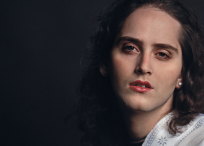

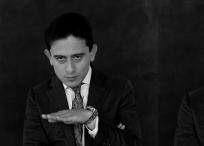

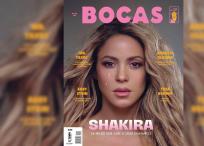
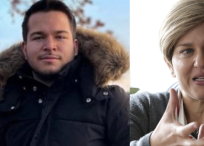
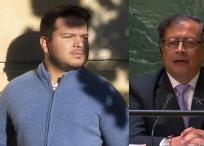









































%20(2).jpg)


